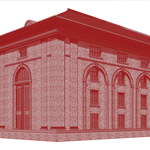WESLEYAN OFFERS COURSERA DATA SCIENCE CERTIFICATE
In September, Wesleyan launched a new specialization on Coursera in the rapidly growing field of data science, called Data Analysis and Interpretation. The four-MOOC (massive open online course) sequence, together with a final capstone project, will offer learners a verified certificate of completion that they may share with prospective or current employers.
Learners who do not want a certificate of completion or capstone project may enroll in the MOOCs at no cost. For those who do, the costs are listed on the Coursera site, and financial aid is available.
Wesleyan is continually expanding its offerings on Coursera, and in early 2016, it plans to introduce a new Creative Writing specialization.
“Wesleyan is developing innovative data analysis instruction, both on campus and online. With this specialization, we’re excited to offer true novices an in-depth, project-based introduction to data science—skills that are increasingly in demand in a wide range of career fields,” said Jennifer Curran, director of Continuing Studies and the Graduate Liberal Studies Program.
Wesleyan’s data science specialization is being led by Lisa Dierker, professor of psychology, director of pilot programs at the Center for Pedagogical Innovation; and Jennifer Rose, professor of the practice and research professor of psychology. Dierker previously taught a data science MOOC on Coursera in 2013.
Despite increasing opportunities available for learning data science, and coding in general, Dierker said many people still don’t feel welcome in the field.
“I was definitely one of those people 20 years ago, and I wish I had known then what I know now. We’re really hoping to create a warm and welcoming place at the table, especially for women and members of other groups who are currently underrepresented in technical fields,” she said. “There’s substantial evidence that attracting women to these fields has a lot to do with making the material compelling—engaging them in real-world issues and using language that connects people rather than creating isolated groups.”
Key to this is a project-based approach to learning. From the start, learners will be asked, “What kinds of questions do you want to answer with data?” They will be able to choose to work with one of a number of data sets from different disciplines, ranging from public health to political science to planetary science.
Dierker hopes that those who complete the specialization come away with a strong general understanding of how to make decisions with data. “When they’re introduced to a new data set, they will know where to begin, how to dig in, and they will feel empowered to ask and answer questions that they care about.” Learn more at coursera.org/wesleyan.

